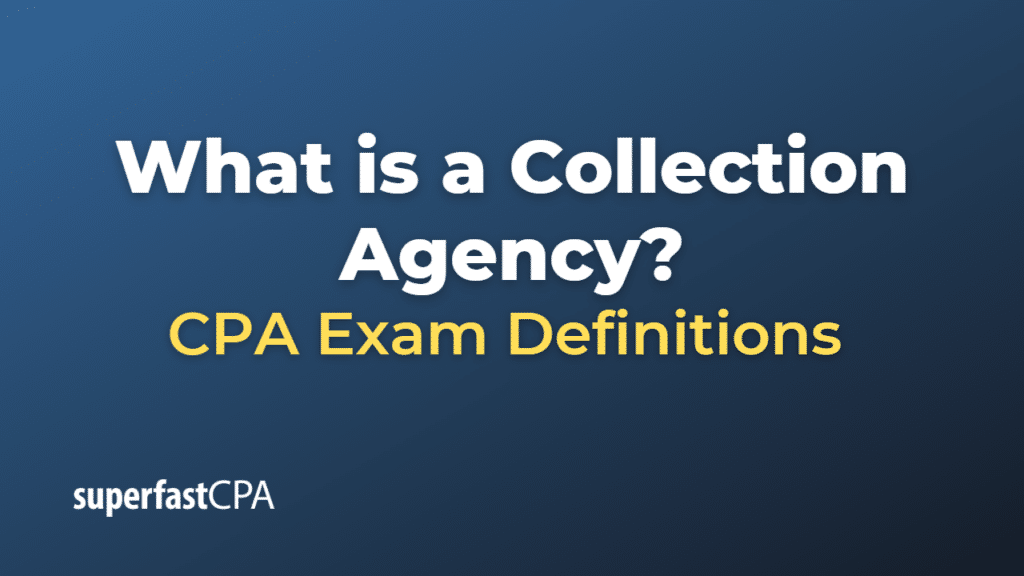Collection Agency
A collection agency is a company that specializes in collecting unpaid debts owed by individuals or businesses. These agencies are typically hired by creditors, such as banks, credit card companies, or other businesses that have extended credit to customers who have failed to fulfill their payment obligations. Collection agencies act on behalf of the original creditor to recover the outstanding debt, often in exchange for a fee or a percentage of the amount collected.
Collection agencies use various methods to contact debtors and attempt to collect the outstanding debt, including phone calls, letters, emails, and in some cases, legal actions. They must adhere to specific laws and regulations governing debt collection practices, such as the Fair Debt Collection Practices Act (FDCPA) in the United States, which prohibits certain abusive, deceptive, or unfair collection tactics.
The primary goal of a collection agency is to recover as much of the outstanding debt as possible on behalf of the creditor, while staying within the legal boundaries. If the debtor cannot or refuses to pay, the collection agency may report the debt to credit bureaus, negatively impacting the debtor’s credit score, or initiate legal proceedings to enforce payment or seize assets.
It’s important to note that not all collection agencies operate in the same way, and some may offer debtors more flexible payment options or work with them to create a repayment plan. However, their ultimate goal remains to collect the unpaid debt on behalf of the creditor.
Example of a Collection Agency
Let’s consider an example of a collection agency in action:
Jane has an outstanding credit card balance of $5,000, and she has missed several consecutive payments. The credit card company has made multiple attempts to contact Jane and collect the outstanding balance, but their efforts have been unsuccessful.
As a result, the credit card company decides to hire a collection agency to recover the debt. The collection agency, ABC Collections, agrees to pursue the debt in exchange for a 25% commission on the amount they recover.
ABC Collections starts the debt collection process by sending a letter to Jane, notifying her that they have been hired to collect the debt on behalf of the credit card company. The letter outlines the outstanding balance, the original creditor, and their intention to collect the debt. They also provide Jane with information on her rights as a debtor and the applicable debt collection laws.
After sending the letter, ABC Collections proceeds to call Jane regularly to remind her of the outstanding debt and negotiate a repayment plan. They remain compliant with the Fair Debt Collection Practices Act (FDCPA) by not engaging in any abusive, deceptive, or unfair practices during their communications.
Finally, Jane agrees to a repayment plan with ABC Collections and begins making monthly payments towards the outstanding balance. As Jane makes her payments, ABC Collections receives a 25% commission on the collected amount, while the credit card company recovers the remaining 75% of the collected debt.
In this example, the collection agency played a crucial role in recovering the outstanding debt on behalf of the credit card company, while also adhering to the applicable debt collection laws and regulations.













